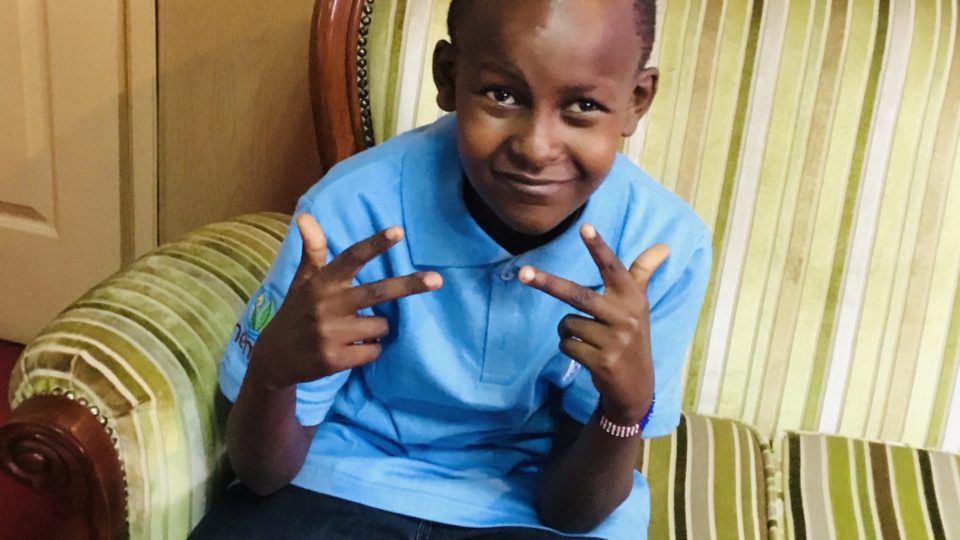From sea level rise, coral bleaching, hydrological effects, changes in water temperature, to alterations in water availability and quality, climate change is threatening our wetlands killing our wildlife and polluting our food chain. The facts are indisputable; since the year 1970s, we have lost 35% of the world’s wetlands. It is a sobering picture but were not powerless. Through working together, we can change this trend. We can take inspiration from individuals across the globe who are doing all they can to a safeguard and restore wetland as they advocate for sustainable use of the wetland long-term solutions that will redefine our relationship with our wetlands. Kenya is rapidly losing its wetlands, and to celebrate this year’s World wetlands day 2019 we choose to tell the story through the eyes of the communities affected. We ran an online digital contest and we received many amazing entries. Our uttermost appreciation to all who participated. Together with National Environment Management Authority – Kenya we awarded the winners and below we take a look at the submissions that supported our initiatives and created awareness on the impact of climate change on wetlands and critical role wetlands play in a changing climate. From Kenya, we say “Hongera”.
Alvin Mugambi: Alvin Mugambi is an 11-year-old boy, who, despite being unhappy that his home wetland – Nthamba Nchuku wetland Meru County is drying up, chose to draw an amazing piece of art showing the critical role Wetlands play. He is a class 6 student at Fadhili Junior School in Nairobi. He Loves swimming, sketching, sports, reading, and travelling. Alvin grew up with his grandmother in Meru where he watched the wetland drying. According to him, the picture shows the decrease in water at the river due to climate change such that the kids are able to go and fish – Mudfish without the fear of drowning since the water level cannot even get to their knee level.
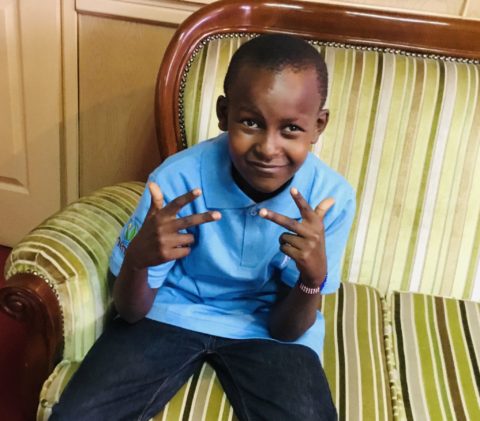
Congratulations Alvin Mugambi for winning the Creative Art Contest-Kids Category
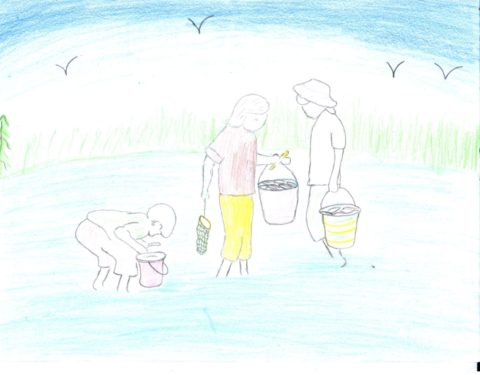
The Images shows Nthamba Nchuku wetland Meru County which is drying up
Harriet Gakii Ngare: Harriet Gakii sought to tell her story about wetlands and climate change through the eyes of her grandmother. She is a 31-year-old environmentalist registered with NEMA as a lead expert – Impact assessments. She leaves in Nairobi County and is passionate about environmental conservation. The artwork shows an eye of her grandmother shedding tears in a wetlands area near her home while she stands on the side wishing would be as it was before. The name of the wetland is Kathima.
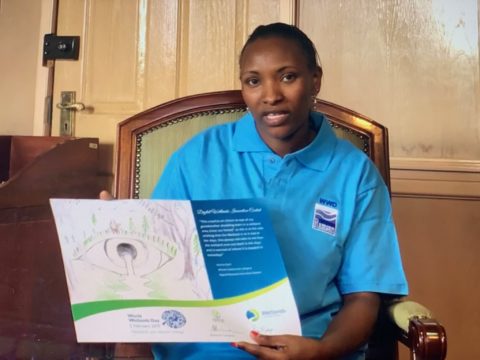
Congratulations Harriet for winning the creative art category for 2019
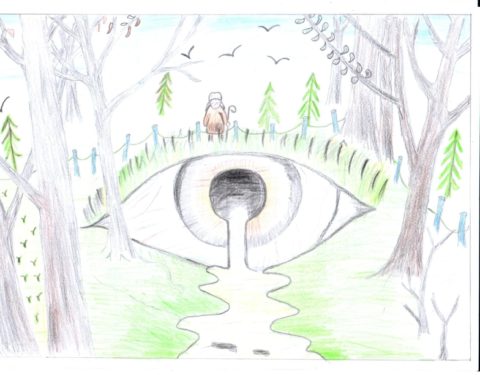
The artwork showing an eye of her grandmother shedding tears in a wetlands area near her home
Justice Brian Baya: Brian Baya a 28 years old farmer and Environmental Science graduate, is worried that river Kombeni which is his main source of water for irrigation is no longer in existence. Being a semi-arid area, Baya has been forced to venture into an alternative source of income to support his family because of reduction to up thus reducing the productivity of his farm. While receiving the award, he appealed to all stakeholders to support his effort of restoring River Kombeni in Mariakani, Kilifi County. The image shows the state of river Kombeni during the month of January. The river has dried up due to human activities that bring about climate change in the ecosystem.
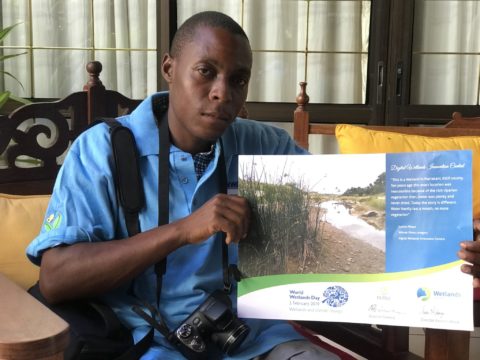
Congratulations Justice Brian Baya for winning Photo Category for the 2019 World Wetlands Day
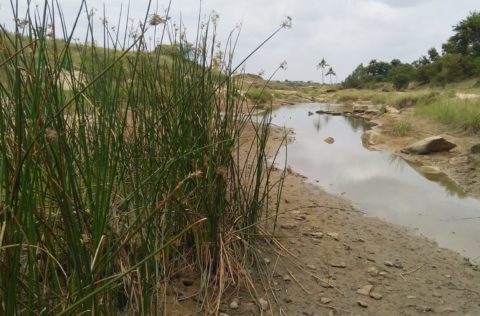
River Kombeni in Mariakani, Kilifi County

The team takes a photo with the digital contest winners

